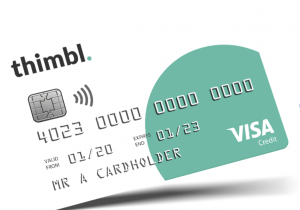What’s Credit Score and Why is it Important?
Your credit history is an integral gateway to the type of credit that you may have access to. The better your credit score the easier the accessibility to affordable credit it. However, if you do have a poor or “thin” credit file (little credit history) you are stuck in a catch twenty-two; you need money but are only being offered higher APR finance products due to your creditworthiness.
In this article we’ll be looking at how you can give yourself the best chance to build your credit history, where you can get free debt and money advice from professional non-profits and how to check your credit score.
If you already have good credit and want to keep on top of your credit score then keep reading, as the habits we’re covering will also help to ensure your credit doesn’t slip.
How to Check your Credit History?
If you are new to checking your credit and are unsure on where to check your credit history, you need to Google a trusted Credit Rating Agency such as TransUnion and Experian. You can check your credit score for free. The scale will let you know what is deemed poor, fair, good and excellent credit from your selected Credit Rating Agency.
Tips to Try & Build Your Credit Profile
The following are just suggestions but are worth trying if you are trying to improve your credit score.
Credit Building Credit Card – Considering a credit building credit card, also known as a poor credit credit card. These are credit cards that have been specifically designed to help people build credit by only allowing small initial credit limits (typically around the £1,000 mark) and slightly higher than average APR %. This is to try and force small regular repayments without spending a large amount of credit. This demonstrates to potential creditors that you are creditworthy and are low risk to lend to.
To build your credit with a credit builder card you need to pay more than the minimum repayment and ensure you pay in a timely manner.
When choosing a credit building card it’s best to go with a large reputable supplier. Thimbl. for example, is supplied by Vanquis Bank and is similar to a Vanquis credit card, so is worth considering.
Keep Credit Utilization Low – Credit utilization is simply the limit of your credit card vs. the balance of your credit card. To work out your credit utilization you will need to accumulate the credit limits on your credit cards and the credit card balances. Next, you’ll divide your total combined card balance by your total available credit. Once you have this figure, you then need to convert this into a percentage, and this is essentially your credit utilization percentage. Typically, the lower this percentage is, the better.
Enrolling to Vote – by enrolling to vote you can improve how creditworthy you are deemed as you have proof of a fixed abode and a clear line of communication between yourself and the lender. You can sign up to vote even if you just live with your parents, you do not need to own the home to use the address. As long as you are living in the address with no plans to move in the near future, signing up to vote is a great way to improve your credit score.
Check for Reporting Errors – Checking your credit report for inconsistencies or errors is important. If you spot an error, you can raise it with your Credit Rating Agency or bank and start an appeal process to have the inconsistency removed, this may help your credit health.
Pay Bills in a Timely Manner – If you have good credit and want to keep it that way, paying your bills on time is a great way to go about it. Missing payments can negatively impact your credit rating. Where possible it’s a good idea to setup direct debits rather than pay manually and you can use budgeting apps such as Plum to help you budget your outgoings and income to make paying bills and monthly money management easier.
What Help is Available?
If you’re concerned about your finances, you can reach out for professional, free advice from not-for-profit financial organizations such as ‘Money Helper’, ‘Citizen’s Advice Bureau’, ‘Step Change’ or the ‘Debt Advice Foundation’. All of these organizations offer free, confidential, professional money and debt advice and work to help give you all the best options available to help you correct and improve your financial situation.
